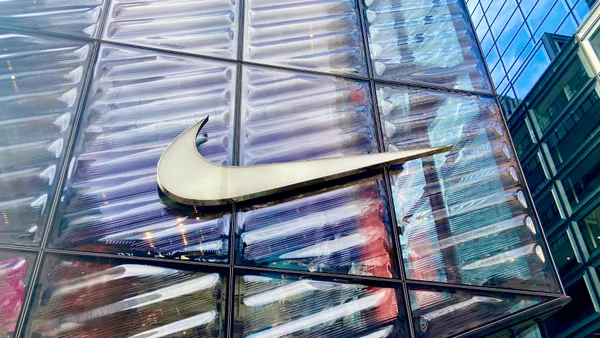Dive Brief:
- In a narrow 5-4 ruling, the Supreme Court of the United States on Thursday overturned a landmark precedent in the e-commerce sales tax debate, thereby striking down a law that previously only mandated that companies with a physical presence in a state must collect and remit sales tax.
- The Supreme Court's opinion, given by Justice Anthony Kennedy, ruled that the physical presence rules upheld in the 1992 Quill Corp. v. North Dakota and 1967 National Bellas Hess Inc. v. Department of Revenue of Ill. cases are "unsound and incorrect."
- "The judgment of the Supreme Court of South Dakota is vacated, and the case is remanded for further proceedings not inconsistent with this opinion," the opinion stated. That means the case will be sent back to South Dakota for a final decision. Unless the court finds another reason why the 2016 law should be held invalid, which it previously did not, it is likely to uphold the law. If upheld, South Dakota's law will implement an economic standard that in South Dakota would require state sales tax collection and remittance only if an online seller does more than $100,000 worth of business, or processes more than 200 transactions in the state.
Dive Insight:
While the implications aren't entirely clear yet, this is broadly a win for states and brick-and-mortar retailers that have aligned with them. The National Retail Federation, for one, heralded the decision as a "major victory" that levels the playing field between online and physical retailers, according to a press release emailed to Retail Dive. For states, the big win will come if they are ultimately able to collect the millions they say they've lost in sales tax dollars.
But e-commerce trade group Netchoice called the ruling a "blow to consumers and small online businesses," according to a statement emailed to Retail Dive. In turn, that means it's a huge loss for e-commerce companies like Wayfair, Newegg and Overstock (all involved in the case), which have argued that the complexity and cost of collecting and remitting would put many small digital sellers out of business. While a nearly $2 billion company like Overstock may be better equipped to foot the bill, it would still be "disruptive," Jonathan Johnson, president of Medici Ventures (a subsidiary of Overstock) and employee of Overstock since 2002, told Retail Dive earlier this year.
"It would not be flipping a light switch though, it would be hard to do [the] day of a decision being issued and read," he said, adding that Overstock has physical presence in at least six states. "We would either hire more people or take people from other projects and prioritize to this for a time."
Paul Rafelson, Pace University law professor and co-founder of the newly formed trade association Online Merchants Guild, has said that overturning Quill would bring on an "existential crisis" for third-party sellers on marketplaces — a tangential issue that may have new implications.
"As Amazon has continued to thrive despite losing the obvious pricing benefit it used to have from not collecting sales taxes in its proprietary business, it remains to be seen if this new ruling will have any real impact on its third-party sales, or if the convenience for shoppers and growing benefits to Prime members will mitigate the pricing shift," Moody’s Lead Retail Analyst Charlie O’Shea said in comments emailed to Retail Dive.
There are still many unanswered questions in regards to exactly how the decision will affect those on both sides of the issue. During oral arguments in April, the justices expressed broad agreement that the 1992 ruling in Quill v. North Dakota was an unforeseeable poor decision given the eventual rise of e-commerce. But it wasn't clear they were ready to overturn it. Justice Sonia Sotomayor expressed specific concern over the "many unanswered questions" that arise in overturning precedents.
Many have urged Congress to act on the issue, which is still a possibility. While several relevant bills are floating through Congress, many critics balk at the notion that they have enough support to reach a vote — something that hasn't happened since Quill was ruled in 1992.













